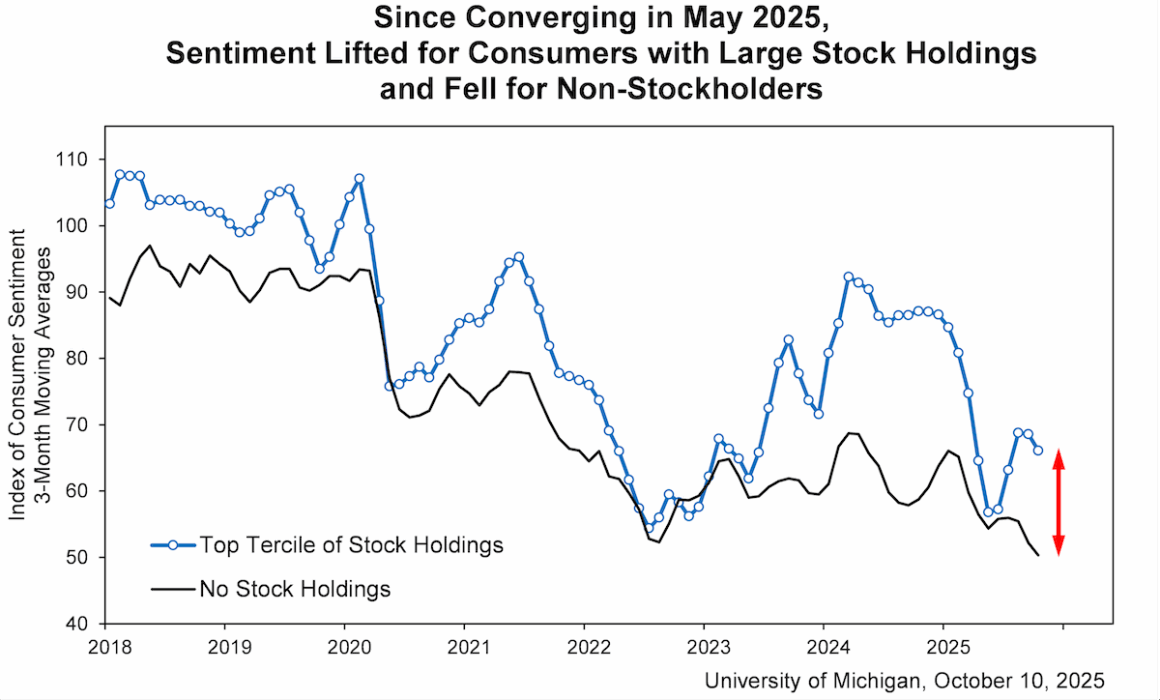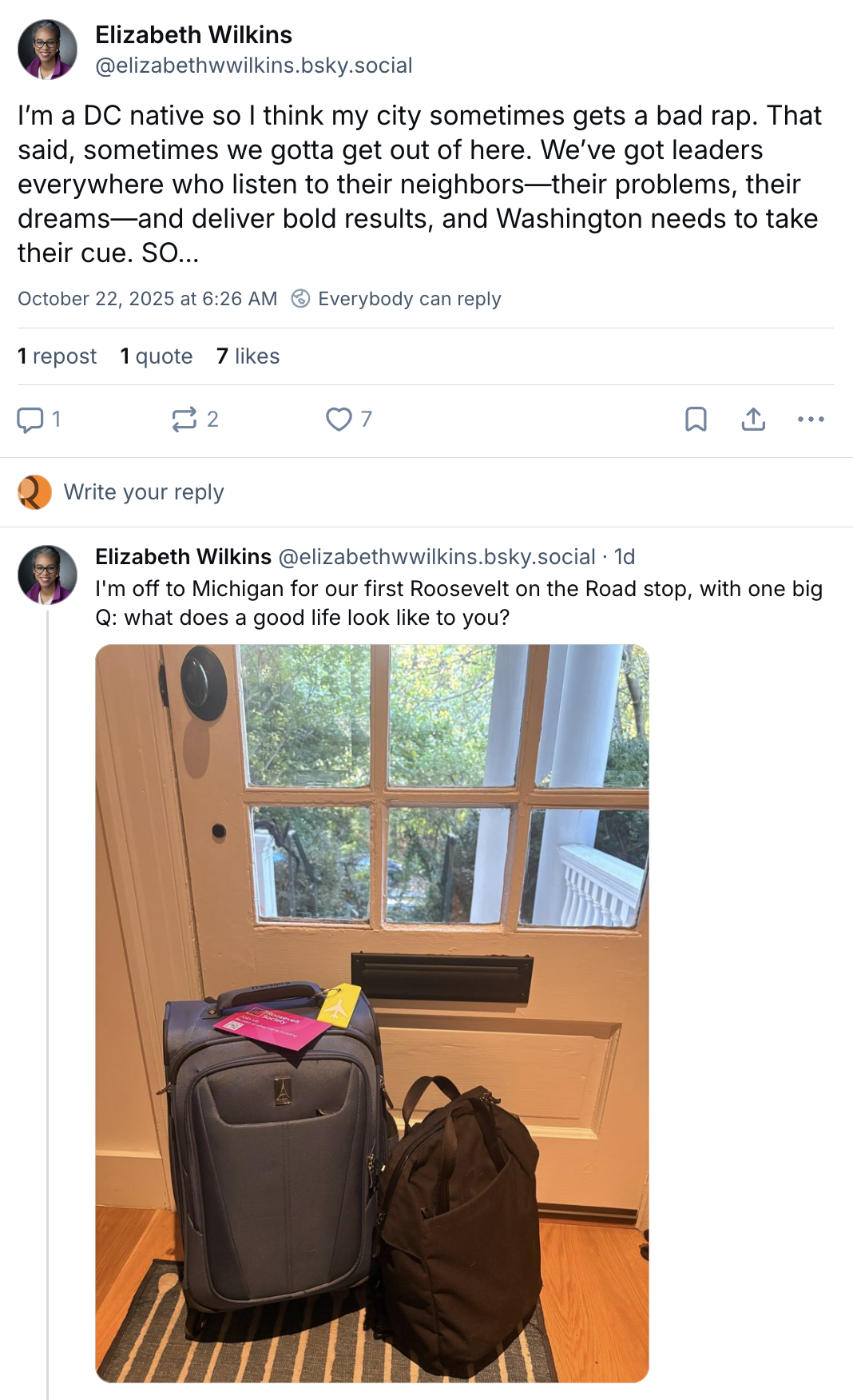The Frozen Economy Is Threatening Workers
October 24, 2025
And we’re missing key data to measure the full extent.
The Roosevelt Rundown features our top stories of the week.

Workers Are Feeling the First Tremors from Destabilizing Forces
US economic data is hard to read right now—not least because the government shutdown is interfering with the collection and release of key jobs and consumer price data. Roosevelt Principal Economist Mike Madowitz explained to The American Prospect his concerns about the effect this will have on the next meeting of the Federal Reserve: “If this is still ongoing by the time [Fed Chair Jerome] Powell is talking to reporters again, they are workshopping the answer to ‘What do you do without data?’”
The data we do have is telling conflicting stories, as Roosevelt Senior Fellow Paul Krugman points out in a new Substack post. He highlights a few factors contributing to a general sense of economic unease:
- AI is booming while other industries are slumping.
- Workers are less confident in their ability to find new jobs. Though overall unemployment measures are largely stable, long-term unemployment and Black unemployment rates are surging.
- The wealthy are increasing spending while the less affluent are struggling.
Setting aside any predictions about the potential effects of Trump administration tariffs or whether the AI boom is a bubble about to burst, the effects of these destabilizing forces are already being felt among the most vulnerable Americans.
“Even though we haven’t had a recession yet,” Krugman writes, “the frozen state of the US economy has already made life much worse for many workers.”
Read the post: “The US Economy Is in Worse Shape Than It Looks”
What We’re Talking About
What We’re Reading
- On the cost of living: The Economic Security Project released a new Affordability Framework, calling out broken markets and broken incomes as drivers of the affordability crisis.
- See Roosevelt’s cost-of-living fact sheet for our recommendations for tackling unaffordability.
- On corporate concentration: This week’s Amazon Web Services (AWS) outage highlights the perils of having too few companies control too large a share of basic internet infrastructure.
- On climate disasters: Bloomberg investigated just how much money is dedicated to prepping for or cleaning up after extreme weather–related disasters each year. Their eye-opening estimate: 36 percent of all growth in GDP since 2000.
- “It is undeniable now that climate change is having significant effects on the drivers of the economy,” says Roosevelt Senior Fellow Sarah Bloom Raskin.
